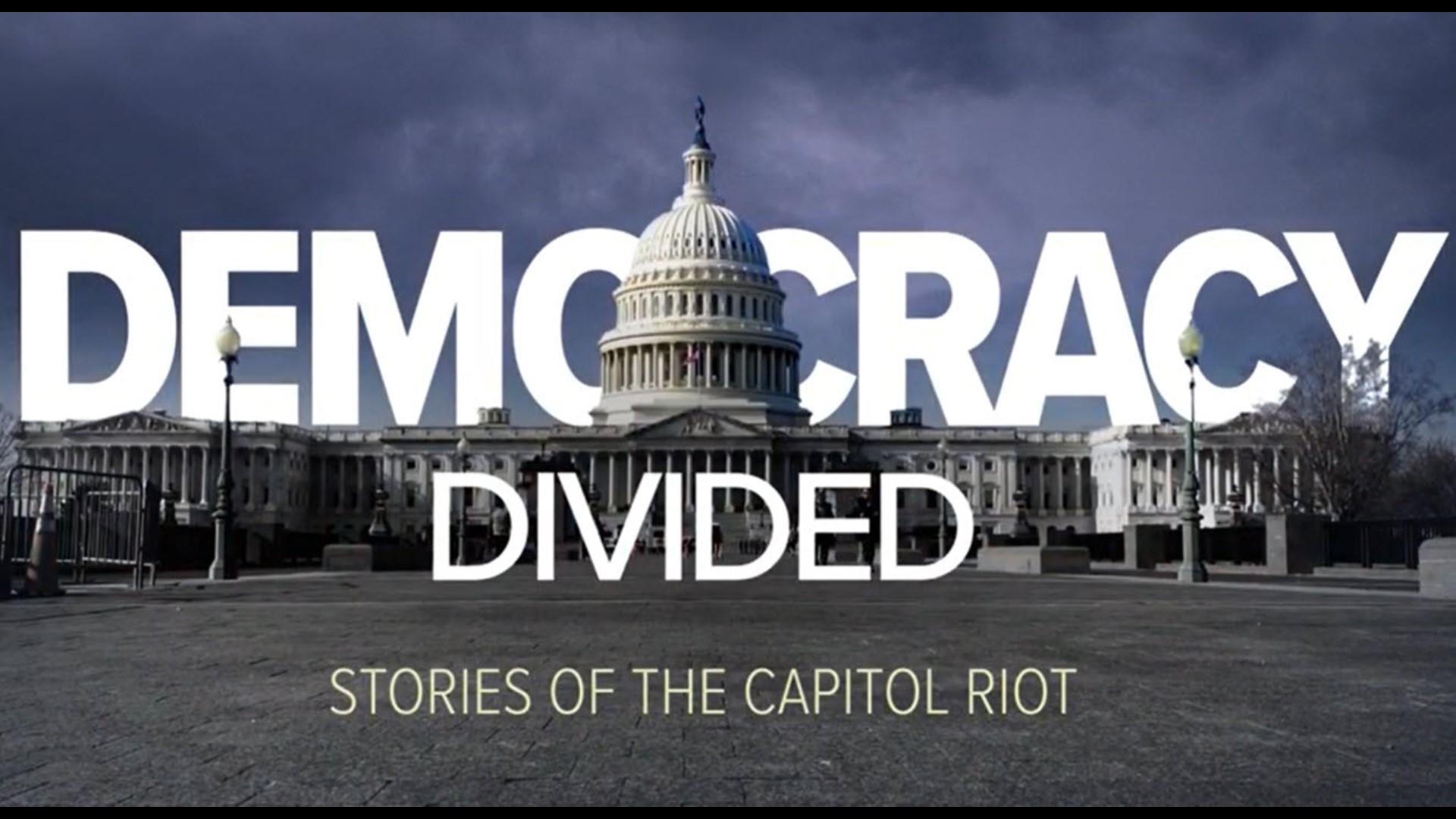WASHINGTON — A three-judge panel of the D.C. Circuit Court of Appeals will hear arguments next week seeking to overturn a lower court judge’s decision to dismiss the top charge in three Jan. 6 cases.
Earlier this year, U.S. District Judge Carl Nichols dismissed a felony count of obstruction of an official proceeding against three defendants: Garret Miller, Joseph Fischer and Edward Jacob Lang. The defendants were three of nearly three hundred who’ve been charged with the offense — codified in 18 U.S. Code § 1512(c)(2) – since the Capitol riot. With the exception of the Oath Keepers and Proud Boys cases where defendants face a rarely used seditious conspiracy charge, obstruction of an official proceeding is the most serious count prosecutors have brought in hundreds of cases.
Nichols’ ruling focused on how the word “otherwise” should be interpreted in the statute, which reads:
(c) Whoever corruptly—
(1) alters, destroys, mutilates, or conceals a record, document, or other object, or attempts to do so, with the intent to impair the object’s integrity or availability for use in an official proceeding; or
(2) otherwise obstructs, influences, or impedes any official proceeding, or attempts to do so,
shall be fined under this title or imprisoned not more than 20 years, or both.
Nichols, who was appointed to the federal bench in 2018 by former President Donald Trump, determined the second section of the statute should be read narrowly as a catch-all provision subordinate to the first section and, as such, that any defendants charged under 1512(c)(2) must take some action with respect to a “document, record or other object.”
Nichols’ colleagues on the D.C. District Court have rejected his reading of the statute in their own orders on similar motions. U.S. District Judges Dabney Friedrich and Trevor McFadden, both appointed, like Nichols, by Trump, called his reading “unnatural” and “strained,” respectively. U.S. District Judge John Bates, a George W. Bush appointee, wrote in a May opinion that he’d concluded the statute is a “broad prohibition on all forms of obstruction” – a reading his colleagues, Nichols excepted, have broadly adopted.
The Justice Department appealed Nichols’ ruling over the summer, arguing section (c)(2), which was added by Congress to fill loopholes in the obstruction statute following the Enron scandal, was intended to serve as a catch-all for conduct not covered by section (c)(1).
Adding to the complexity, the defense attorneys in the case — F. Clinton Broden, Nicholas D. Smith, Steven A. Metcalf, and federal public defenders Frederick W. Ulrich and Amanda Gaynor — have proposed their own interpretation of the statute which differs from Nichols’ and the government’s. In the defense’s appellee memo, the attorneys argue the 1512(c) statute should be read as narrowly focused on “investigations and evidence.” They argue the statute was meant to criminalize actions undertaken to “impair evidence.” The joint session of Congress, while an “official proceeding” under the law’s definition, does not involve Congress’ power of inquiry or evidence, they argue. As such, they say, Nichols properly dismissed the charges even if they disagree with the precise reasoning that led him to that decision.
Arguments from both sides will be heard Monday by a panel of D.C. Circuit Court Judges Gregory Katsas, Florence Pan and Justin Walker. Katsas was nominated to the bench in 2017 by Trump. Walker, also a Trump nominee, was confirmed as a federal judge in 2019 to the U.S. District for the Western District of Kentucky before being elevated to the D.C. Circuit in 2020. Pan was first nominated to sit on the D.C. Superior Court by former President Barack Obama in 2009. She was confirmed as a judge on the D.C. District Court in 2021, and further elevated to the D.C. Circuit in May by President Joe Biden.
Although a decision upholding Nichols’ ruling based on either his or the appellee’s theory could have dramatic effects on the hundreds of pending and resolved Jan. 6 cases where the obstruction charge has been brought, it may be an uphill battle to convince the Circuit Court panel to go along. Just as no other judge on the D.C. District Court has agreed with Nichols’ interpretation, the DOJ noted in its brief in August that a half dozen other federal appellate courts have upheld convictions under the same statute.
If the three-judge panel does agree with either Nichols or the defendants' attorneys, the DOJ would likely request arguments be heard again en banc by the entire D.C. Circuit Court. Ultimately, any decision at the circuit court level could be appealed to the Supreme Court, although it's unclear whether they would take the case.
At the district level, all three defendants named in the appeal face other felony charges. Miller, of Texas, appeared in court Thursday morning to plead guilty to three felony counts of civil disorder and six other misdemeanor charges. He was scheduled to begin a bench trial Friday on at least one remaining charge stemming from an alleged threat against Democrat Rep. Alexandria Ocasio-Cortez (NY). Fischer, a Pennsylvania patrolman, is accused of assaulting, resisting or impeding police inside the Capitol. Lang, of New York, faces multiple assault charges, including two with dangerous weapon enhancements for allegedly using a bat and shield against police.
We're tracking all of the arrests, charges and investigations into the January 6 assault on the Capitol. Sign up for our Capitol Breach Newsletter here so that you never miss an update.

